40 start with P start with P


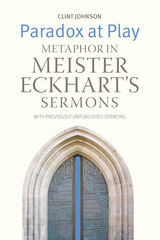
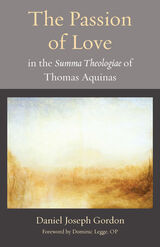
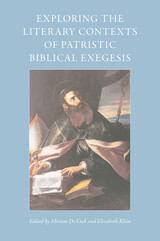

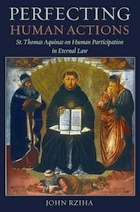
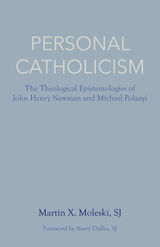

In this volume, Josef Fuchs has brought together 12 important essays which consider various aspects of the relationship between Christian morality and human behavior. Among the subjects he discusses are the connections between moral theology and Christian experience, the absolute character of moral norms, and the importance of ethical reflection in shaping the future of the human race.
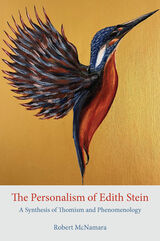
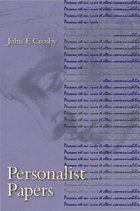
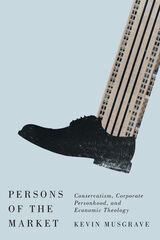
light on their seemingly odd marriage in contemporary American politics. Author Kevin Musgrave highlights the ways that theories of corporate and human personhood have long been and remain bound together by examining four case studies: the U.S. Supreme Court’s 1886 Santa Clara decision, the role of early twentieth-century advertisers in endowing corporations with souls, Justice Lewis Powell Jr.’s eponymous memo of 1971, and the arc of the conservative movement from Ronald Reagan to Donald Trump. Tracing this rhetorical history of the extension and attribution of personhood to the corporate form illustrates how the corporation has for many increasingly become a normative model or ideal to which human persons should aspire. In closing, the book offers preliminary ideas about how we might fashion a more democratic and humane understanding of what it means to be a person.


“God necessarily exists, since it is not possible for things to be otherwise, as Aristotle shows in the Metaphysics.” So Mehmed II, the Ottoman conqueror of both Constantinople and Trebizond, tells George Amiroutzes, the Byzantine scholar and native of Trebizond, in the beginning of a conversation reported in Amiroutzes’s dialogue The Philosopher, or On Faith.
The dialogue is a literary recreation of the conversations between Mehmed, a Muslim, and Amiroutzes, a Christian. In the course of The Philosopher, the two debate the role of logic and rationality in religious debate, the nature of God, and the fate of the body and soul in the afterlife. Surprisingly complex and subtle arguments emerge, firmly situated in their fifteenth-century context but steeped in the long Greek philosophical tradition.
Previously known only from a sixteenth-century Latin translation, The Philosopher was rediscovered in a Greek manuscript in Toledo. In this volume, John Monfasani presents both the editio princeps and the first translation from the Greek, with an introduction that discusses the life of Amiroutzes and the text, the text and translation with full apparatus and notes, and two appendixes that present documents related to the relationship between Amiroutzes and Mehmed.
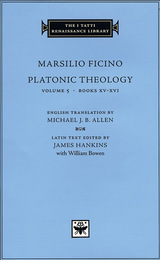
The Platonic Theology is a visionary work and the philosophical masterpiece of Marsilio Ficino (1433-1499), the Florentine scholar-philosopher-magus who was largely responsible for the Renaissance revival of Plato. A student of the Neoplatonic schools of Plotinus and Proclus, he was committed to reconciling Platonism with Christianity, in the hope that such a reconciliation would initiate a spiritual revival and return of the golden age. His Platonic evangelizing was eminently successful and widely influential, and his Platonic Theology, translated into English for the first time in this edition, is one of the keys to understanding the art, thought, culture, and spirituality of the Renaissance.
This is the fifth of a projected six volumes.
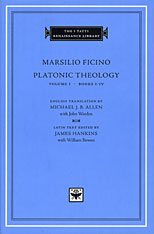
The Platonic Theology is a visionary work and the philosophical masterpiece of Marsilio Ficino (1433-1499), the Florentine scholar-philosopher-magus who was largely responsible for the Renaissance revival of Plato.
A student of the Neoplatonic schools of Plotinus and Proclus, he was committed to reconciling Platonism with Christianity, in the hope that such a reconciliation would initiate a spiritual revival and return of the golden age. His Platonic evangelizing was eminently successful and widely influential, and his Platonic Theology, translated into English for the first time in this edition, is one of the keys to understanding the art, thought, culture, and spirituality of the Renaissance.

The Platonic Theology is a visionary work and the philosophical masterpiece of Marsilio Ficino (1433-1499), the Florentine scholar-philosopher-magus who was largely responsible for the Renaissance revival of Plato. A student of the Neoplatonic schools of Plotinus and Proclus, he was committed to reconciling Platonism with Christianity, in the hope that such a reconciliation would initiate a spiritual revival and return of the golden age. His Platonic evangelizing was eminently successful and widely influential, and his Platonic Theology, translated into English for the first time in this edition, is one of the keys to understanding the art, thought, culture, and spirituality of the Renaissance.
This sixth and final volume of the I Tatti Renaissance Library edition includes comprehensive indexes to the whole work.


The Platonic Theology is a visionary work and the philosophical masterpiece of Marsilio Ficino (1433–1499), the Florentine scholar-philosopher-magus who was largely responsible for the Renaissance revival of Plato.
A student of the Neoplatonic schools of Plotinus and Proclus, he was committed to reconciling Platonism with Christianity, in the hope that such a reconciliation would initiate a spiritual revival and return of the golden age. His Platonic evangelizing was eminently successful and widely influential, and his Platonic Theology, translated into English for the first time in this edition, is one of the keys to understanding the art, thought, culture, and spirituality of the Renaissance.

The Platonic Theology is a visionary work and the philosophical masterpiece of Marsilio Ficino (1433-1499), the Florentine scholar-philosopher-magus who was largely responsible for the Renaissance revival of Plato.
A student of the Neoplatonic schools of Plotinus and Proclus, he was committed to reconciling Platonism with Christianity, in the hope that such a reconciliation would initiate a spiritual revival and return of the golden age. His Platonic evangelizing was eminently successful and widely influential, and his Platonic Theology, translated into English for the first time in this edition, is one of the keys to understanding the art, thought, culture, and spirituality of the Renaissance.
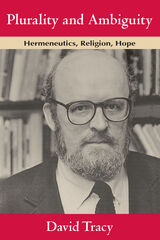
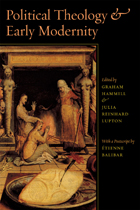
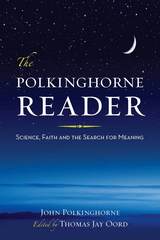
The Revd. Dr. John Polkinghorne is a world-renowned authority in the field of science and religion. His numerous books in this area, written over the past three decades, have been hugely influential. The Polkinghorne Reader brings together key extracts from his writings on core issues such as the nature of science, the physical world, human nature, love, theology, creation, providence, prayer and miracle, time, evil, Jesus, the resurrection, the Trinity, eschatology, and world faiths.
Ideal for readers who are new to Polkinghorne or who are just beginning to explore the interplay between science and religion, this collection will also be welcomed by all who have read his earlier works but would like one handy resource that presents the major facets of his thought in an accessible and systematic fashion.
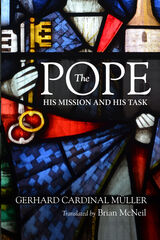

This volume of the Building Bridges Seminar, Power: Divine and Human, Christian and Muslim Perspectives, comprises pairs of essays by Christians and Muslims which introduce texts for dialogical study, plus the actual text-excerpts themselves.
This new book goes far beyond mere reporting on a dialogical seminar; rather, it provides guidance and materials for constructing a similar dialogical experience on a particular topic. As a resource for comparative theology, Power: Divine and Human is unique in that it takes up a topic not usually explored in depth in Christian-Muslim conversations. It is written by scholars for scholars. However, in tone and structure, it is suitable for the non-specialist as well. Students (undergraduate and graduate), religious leaders, and motivated non-specialists will find it readable and useful. While it falls solidly in the domain of comparative theology, it can also be used in courses on dialogical reading of scripture, interreligious relations, and political philosophy.

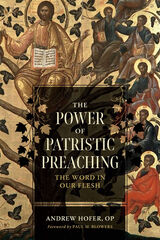
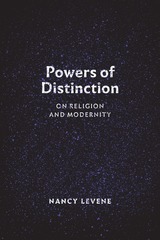
In readings from Abraham to the present, Levene recovers this richer dualism in its difference from the alternatives—other dualisms, nondualism, multiplication. From Abraham we get the biblical call to give up tribal belonging for a promised land of covenantal relation. Yet modernity, inclusive of this call, is also the principle that critiques the promise when it divides self from other, us from them.
Drawing on a long tradition of thinkers and scholars even as she breaks new ground, Levene offers here nothing less than a new way of understanding modernity as an ethical claim about our world, a philosophy of the powers of distinction to include rather than to divide.
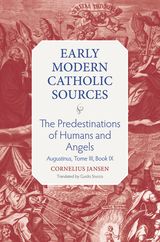
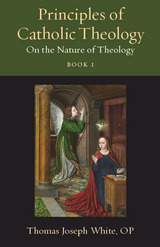


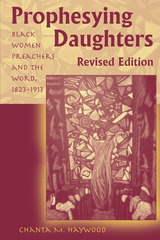
In nineteenth-century America, many black women left their homes, their husbands, and their children to spread the Word of God. Descendants of slaves or former “slave girls” themselves, they traveled all over the country, even abroad, preaching to audiences composed of various races, denominations, sexes, and classes, offering their own interpretations of the Bible. When they were denied the pulpit because of their sex, they preached in tents, bush clearings, meeting halls, private homes, and other spaces. They dealt with domestic ideologies that positioned them as subservient in the home, and with racist ideologies that positioned them as naturally inferior to whites. They also faced legalities restricting blacks socially and physically and the socioeconomic reality of often being part of a large body of unskilled laborers.
Jarena Lee, Julia Foote, Maria Stewart, and Frances Gaudet were four women preachers who endured such hardships because of their religious convictions. Often quoting from the scripture, they insisted that they were indeed prophesying daughters whom God called upon to preach. Significantly, many of these women preachers wrote autobiographies in which they present images of assertive, progressive, pious women—steadfast and unmovable in their religious beliefs and bold in voicing their concerns about the moral standing of their race and society at large.
Chanta M. Haywood examines these autobiographies to provide new insight into the nature of prophesying, offering an alternative approach to literature with strong religious imagery. She analyzes how these four women employed rhetorical and political devices in their narratives, using religious discourse to deconstruct race, class, and gender issues of the nineteenth century.
By exploring how religious beliefs become an avenue for creating alternative ideologies, Prophesying Daughters will appeal to students and scholars of African American literature, women’s studies, and religious studies.

The United States was founded on a commitment to religious tolerance. Based on this commitment, it has become one of the most religiously diverse and religiously observant liberal democracies in the world. Inherent in this political reality is the question, "What is the appropriate relationship between religious beliefs and public life?" This is not a new question, but in contemporary US politics it has become a particularly insistent one. In this intelligent, wide-ranging book, Kristin Heyer provides new and nuanced answers.
Prophetic and Public employs the discourse of public theology to consider what constitutes appropriate religio-political engagement. According to Heyer, public theology connects religious faith, concepts, and practices to their public relevance for the wider society. Her use of public theology concepts to address the appropriate possibilities and limits for religio-political engagement in the United States is both useful and enlightening.
Heyer approaches the relationship between public morality and religious commitment through the example of the Catholic Church. She looks at two prominent Catholics—Michael Baxter and Bryan Hehir—as a way of discussing norms for practice of public theology. Heyer also analyzes case studies of three US Catholic advocacy groups: The US Conference of Catholic Bishops, NETWORK, and Pax Christi USA. Through her analysis she shows the various ways that the organizations' Catholic identity impacts their social and political efforts. From her investigations come norms that define possibilities and limits for political actions based on religious conviction.
This deeply thoughtful book examines what is truly fundamental and inescapable about public life and private religious belief in the United States. In doing so, it makes skillful use of the tools of theology, philosophy, law, and advocacy to demonstrate that the Catholic Church reveals great diversity in its public theology, providing legitimate options for a faithful response to urgent political issues.
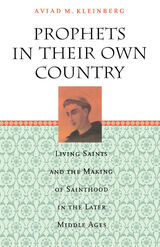
"[A] fascinating and sometimes iconoclastic view of saints in the medieval period." —Sandra R. O'Neal, Theological Studies
"[An] important new book. . . . [And] an excellent piece of scholarship." —Diane L. Mockridge, Method & Theory in the Study of Religion
"[Kleinberg's] style is clear and accessible and his observations insightful; the book is a pleasure to read." —Veronica Lawrence, Theological Book Review
"Original and interesting. . . . [Kleinberg] has made a major contribution." —Anne L. Clark, American Historical Review
"Kleinberg's concern is not just with perceptions of sanctity, but, refreshingly, with what actually happened: and he is especially good on the conflict of the two. . . . [This] is not just a book but a way of thought, and one that promises interesting conversations at all levels from the church porch to the tutorial and the academic conference." —Helen Cooper, Times Literary Supplement
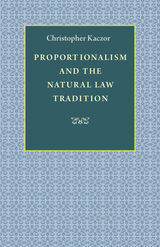

One of the most heated debates in recent times among Christian ethicians has been over what has come to be called "proportionalism." Opponents have argued that proportionalists are intent on relativizing theology norms and theh concept of intrinsic evil. Proponents, on the other hand, argue that they are merely developing a traditional notion of proportion of reason. Bernard Hoose puts this debate in context by showing its roots in the writings of European moral theologians and its flowering in the writings of their American colleagues. He uncovers a number of confusions that have bedeviled the argument while revealing how important the issues are for establishing in coherent Christian ethics in the twentieth century.
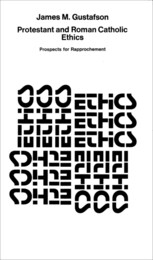
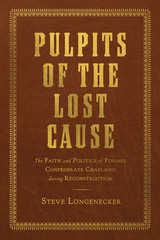
Pulpits of the Lost Cause: The Faith and Politics of Former Confederate Chaplains during Reconstruction is the first in-depth study of former chaplains that juxtaposes their religion and politics, thereby revealing important insights about the Lost Cause movement. Steve Longenecker demonstrates that while some former chaplains vigorously defended the Lost Cause and were predictably conservative in the pulpit, embracing orthodoxy and resisting religious innovation, others were unexpectedly progressive and advocated on behalf of evolution, theological liberalism, and modern biblical criticism.
Former Confederate chaplains embodied both the distinctive white, Southern, regional identity and the variation within it. Most were theologically conservative and Lost Cause racists. But as with the larger South, variation abounded. The Lost Cause, which Longenecker interprets as a broad popular movement with numerous versions, meant different things to different chaplains. It ranged from diehard-ism to tempered sectional forgiveness to full reconciliation to a harmless once-a-year Decoration Day ritual.
This volume probes the careers of ten former chaplains, including their childhoods, wartime experiences, Lost Cause personas, and theologies, making use of manuscripts and published sermons as well as newspapers, diaries, memoirs, denominational periodicals, letters, and the books they themselves produced. In theology, many former chaplains were predictably conservative, while others were unexpectedly broad-minded and advocated evolution, theological liberalism, and modern Biblical criticism. One former chaplain became a social-climbing Harvard progressive. Another wrote innovative, liberal theology read by European scholars. Yet another espoused racial equality, at least in theory if not full practice. Additionally, former chaplains often exhibited the fundamental human trait of compartmentalization, most notably by extolling the past as they celebrated the Lost Cause while simultaneously looking to the future as religious progressives or New South boosters. The stereotypical preacher of the Lost Cause—a gray-clad Bible thumper—existed sufficiently to create the image but hardly enough to be universally accurate.
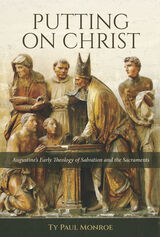
READERS
Browse our collection.
PUBLISHERS
See BiblioVault's publisher services.
STUDENT SERVICES
Files for college accessibility offices.
UChicago Accessibility Resources
home | accessibility | search | about | contact us
BiblioVault ® 2001 - 2024
The University of Chicago Press









